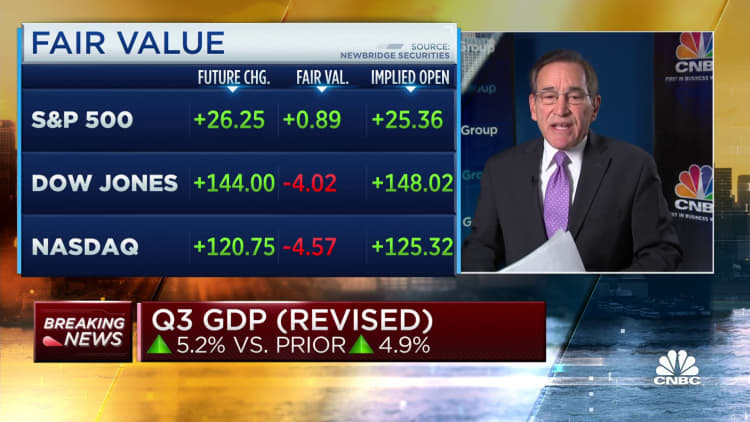Is the U.S. in a silent depression? The TikTok theory explained
A shopper carries several bags in the Magnificent Mile shopping district of Chicago on Dec. 2, 2023.
Taylor Glascock | Bloomberg | Getty Images
The U.S. economy has remained remarkably strong but affordability is worse than it has ever been, some social media users say, even when compared to The Great Depression.
One of TikTok’s latest trends, coined the “silent depression,” aims to explain how key expenses such as housing, transportation and food account for an increasing share of the average American’s take-home pay. It’s harder today to get by than it was during the worst economic period in this country’s history, according to some TikTokers.
But economists strongly disagree.
“Any notion from TikTok that life was better in 1923 than it is now is divorced from reality,” said Columbia Business School economics professor Brett House.
More from Personal Finance:
62% of Americans are living paycheck to paycheck
Shoppers embrace ‘girl math’ to justify luxury purchases
Even high earners consider themselves ‘not rich yet’
Compared to 100 years ago, “today, life expectancies are much longer, the quality of lives is much better, the opportunities to realize one’s potential are much greater, human rights are more widely respected and access to information and education is widely expanded,” House said.
Even when just looking at the numbers, the country has continued to expand since the Covid-19 pandemic, sidestepping earlier recessionary forecasts.
Officially, the National Bureau of Economic Research defines a recession as “a significant decline in economic activity that is spread across the economy and lasts more than a few months.” There have been more than a dozen recessions in the last century, some lasting as long as a year and a half.
‘This is hardly a depression’
The only depression the U.S. has ever experienced in industrial times spanned a decade, from the stock market crash of 1929 until 1939, when the U.S. began mobilizing for World War II.
A depression is a “totally different order of magnitude,” Susan Houseman, research director at the W.E. Upjohn Institute for Employment Research, told CNBC. “We haven’t seen anything like it for 80 to 90 years.”

In fact, the latest quarterly gross domestic product report, which tracks the overall health of the economy, rose more than expected, while the Federal Reserve‘s effort to bring down inflation has so far been successful, a rare feat in economic history.
The central bank signaled in its latest economic projections that it will cut interest rates in 2024 even with the economy still growing, which would be the sought-after path to a “soft landing,” where inflation returns to the Fed’s 2% target without causing a significant rise in unemployment.
“To be sure, the economy is slowing, and the job market is cooling, but we are not in a depression,” said Sung Won Sohn, professor of finance and economics at Loyola Marymount University and chief economist at SS Economics.
‘Inflation has been hitting the poor more…
Read More: Is the U.S. in a silent depression? The TikTok theory explained
